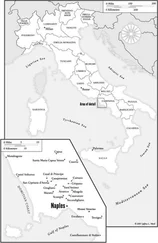Eric Ambler - Journey Into Fear
Здесь есть возможность читать онлайн «Eric Ambler - Journey Into Fear» весь текст электронной книги совершенно бесплатно (целиком полную версию без сокращений). В некоторых случаях можно слушать аудио, скачать через торрент в формате fb2 и присутствует краткое содержание. Год выпуска: 1940, ISBN: 1940, Издательство: Knopf, Жанр: Шпионский детектив, на английском языке. Описание произведения, (предисловие) а так же отзывы посетителей доступны на портале библиотеки ЛибКат.
- Название:Journey Into Fear
- Автор:
- Издательство:Knopf
- Жанр:
- Год:1940
- ISBN:9780307949967
- Рейтинг книги:5 / 5. Голосов: 1
-
Избранное:Добавить в избранное
- Отзывы:
-
Ваша оценка:
- 100
- 1
- 2
- 3
- 4
- 5
Journey Into Fear: краткое содержание, описание и аннотация
Предлагаем к чтению аннотацию, описание, краткое содержание или предисловие (зависит от того, что написал сам автор книги «Journey Into Fear»). Если вы не нашли необходимую информацию о книге — напишите в комментариях, мы постараемся отыскать её.
Journey Into Fear — читать онлайн бесплатно полную книгу (весь текст) целиком
Ниже представлен текст книги, разбитый по страницам. Система сохранения места последней прочитанной страницы, позволяет с удобством читать онлайн бесплатно книгу «Journey Into Fear», без необходимости каждый раз заново искать на чём Вы остановились. Поставьте закладку, и сможете в любой момент перейти на страницу, на которой закончили чтение.
Интервал:
Закладка:
The first thing he had to consider was, of course, his attitude towards Moeller. As Mr. Kuvetli had pointed out, it was possible that the man would wait until the evening before making any attempt to find out if the line he had put out the previous evening had caught the fish. That meant that he, Graham, would have to sit through two meals with Moeller and Banat without giving himself away. That, certainly, would not be pleasant. He wondered whether it might not be safer to approach Moeller at once. It would, after all, be far more convincing if the victim made the first move. Or would it be less convincing? Should the fish still be struggling on the hook when the line was reeled in? Evidently Mr. Kuvetli thought that it should. Very well. Mr. Kuvetli’s instructions should be followed exactly. The questions of how he was going to behave at lunch and dinner could be left to settle themselves when those times came. As for the actual interview with Moeller, he had ideas about making that convincing. Moeller should not have things all his own way. Rather to his surprise, he found that it was the thought of what he had to do about Josette which worried him most.
He was, he told himself, treating her shabbily. She had been kind to him in her way. Indeed, she could not have been kinder. It was no excuse to say that she had behaved badly over that business of José’s revolver. It had been unfair of him to ask her to steal for him: José was, after all, her partner. It would not even be possible now for him to give her that handbag with a thousand-franc note in it, unless he left it for her on his way through Paris, and it was always possible that she would not go to the Hotel des Belges. It was no good protesting that she was out for what she could get. She had made no secret of the fact and he had tacitly accepted it. He was treating her shabbily, he told himself again. It was an attempt to rationalise his feelings about her and it was strangely unsuccessful. He was perplexed.
He did not see her until just before lunch, and then she was with José.
It was a wretched day. The sky was overcast and there was an icy north-east wind with a hint of snow in it. He had spent most of the morning in a corner of the saloon reading some old copies of L ’ Illustration he found there. Mr. Kuvetli had seen and looked through him. He had spoken to no one except the Beronellis, who had given him a defensive “buon giorno,” and the Mathis, who had returned his greeting with a frigid bow. He had thought it necessary to explain to the Mathis that his rudeness of the previous evening had been unintentional and due to his feeling ill at the time. The explanation had been accepted by them with some embarrassment and it had occurred to him that they might have preferred a silent feud to an apology. The man had been particularly confused as if he were finding himself in some way ridiculous. They had soon decided that they must go for a walk on deck. Through the porthole Graham had seen them a few minutes later walking with Mr. Kuvetli. The only other person on deck that morning had been Moeller’s Armenian demonstrating pathetically, for there was a heavy swell, that her dislike of the sea was no mere figment of her “husband’s” imagination. Soon after twelve Graham had collected his hat and coat from his cabin and gone out for the stroll which he had decided should precede the drinking of a large whisky and soda.
He was on his way back to the saloon when he encountered Josette and José.
José stopped with an oath and clutched at his curly soft hat which the wind was trying to snatch from his head.
Josette met Graham’s eyes and smiled significantly. “José is angry again. Last night he played cards and lost. It was the little Greek, Mavrodopoulos. The attar of roses was too strong for the California Poppy.”
“He is no Greek,” said José sourly. “He has the accent of a goat as well as the smell. If he is a Greek I will …” He said what he would do.
“But he can play cards, mon cher caïd.”
“He stopped playing too soon,” said José. “You need not worry. I have not finished with him.”
“Perhaps he has finished with you.”
“He must be a very good player,” Graham put in tactfully.
José eyed him distastefully. “And what do you know about it?”
“Nothing,” retorted Graham coldly. “For all I know it may be simply that you are a very bad player.”
“You would like to play perhaps?”
“I don’t think so. Cards bore me.”
José sneered. “Ah, yes! There are better things to do, eh?” He sucked his teeth loudly.
“When he is bad-tempered,” Josette explained, “he cannot be polite. There is nothing to be done with him. He does not care what people think.”
José pursed up his mouth into an expression of saccharine sweetness. “ ‘He does not care what people think,’ ” he repeated in a high, derisive falsetto. Then his face relaxed. “What do I care what they think?” he demanded.
“You are ridiculous,” said Josette.
“If they do not like it they can stay in the lavabos,” José declared aggressively.
“It would be a small price to pay,” murmured Graham.
Josette giggled. José scowled. “I do not understand.”
Graham did not see that there was anything to be gained by explaining. He ignored José and said in English: “I was just going to have a drink. Will you come?”
She looked doubtful. “Do you wish to buy José a drink also?”
“Must I?”
“I cannot get rid of him.”
José was glowering at them suspiciously. “It is not wise to insult me,” he said.
“No one is insulting you, imbecile. Monsieur here asks us to have drinks. Do you want a drink?”
He belched. “I do not care who I drink with if we can get off this filthy deck.”
“He is so polite,” said Josette.
They had finished their drinks when the gong sounded. Graham soon found that he had been wise to leave the question of his attitude towards Moeller to answer itself. It was “Haller” who appeared in answer to the gong; a Haller who greeted Graham as if nothing had happened and who embarked almost immediately on a long account of the manifestations of An, the Sumerian sky god. Only once did he show himself to be aware of any change in his relationship with Graham. Soon after he began talking, Banat entered and sat down. Moeller paused and glanced across the table at him. Banat stared back sullenly. Moeller turned deliberately to Graham.
“Monsieur Mavrodopoulos,” he remarked, “looks as if he has been frustrated in some way, as if he has been told that he may not be able to do something that he wishes to do very badly. Don’t you think so, Mr. Graham? I wonder if he is going to be disappointed.”
Graham looked up from his plate to meet a level stare. There was no mistaking the question in the pale blue eyes. He knew that Banat, too, was watching him. He said slowly: “It would be a pleasure to disappoint Monsieur Mavrodopoulos.”
Moeller smiled and the smile reached his eyes. “So it would. Now let me see. What was I saying? Ah, yes …”
That was all; but Graham went on with his meal, knowing that one at least of the day’s problems was solved. He would not have to approach Moeller: Moeller would approach him.
But Moeller was evidently in no hurry to do so. The afternoon dragged intolerably. Mr. Kuvetli had said that they were not to have any sort of conversation and Graham deemed it advisable to plead a headache when Mathis suggested a rubber of bridge. His refusal affected the Frenchman peculiarly. There was a troubled reluctance about his acceptance of it, and he looked as if he had been about to say something important and then thought better of it. There was in his eyes the same look of unhappy confusion that Graham had seen in the morning. But Graham wondered about it only for a few seconds. He was not greatly interested in the Mathis.
Читать дальшеИнтервал:
Закладка:
Похожие книги на «Journey Into Fear»
Представляем Вашему вниманию похожие книги на «Journey Into Fear» списком для выбора. Мы отобрали схожую по названию и смыслу литературу в надежде предоставить читателям больше вариантов отыскать новые, интересные, ещё непрочитанные произведения.
Обсуждение, отзывы о книге «Journey Into Fear» и просто собственные мнения читателей. Оставьте ваши комментарии, напишите, что Вы думаете о произведении, его смысле или главных героях. Укажите что конкретно понравилось, а что нет, и почему Вы так считаете.












